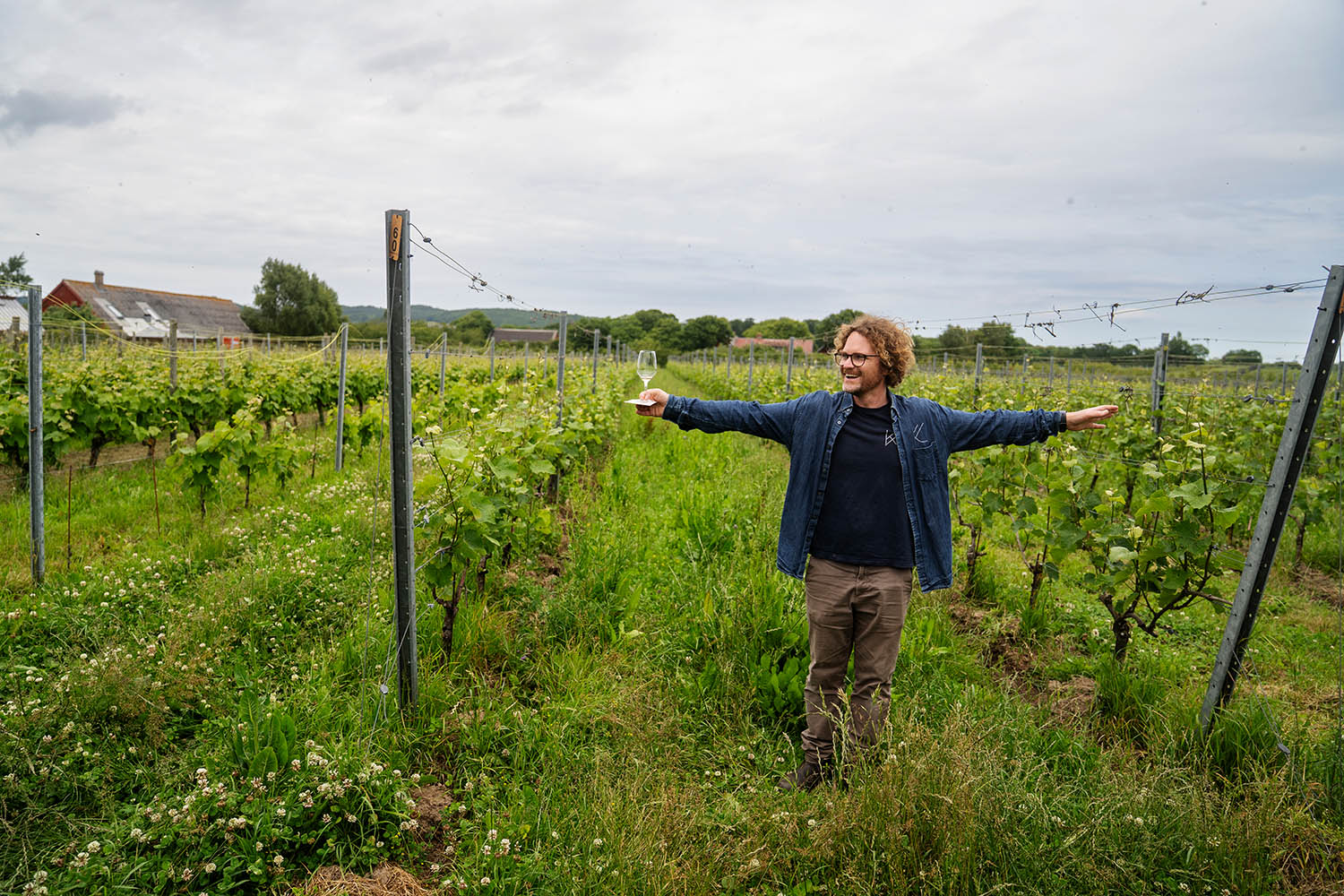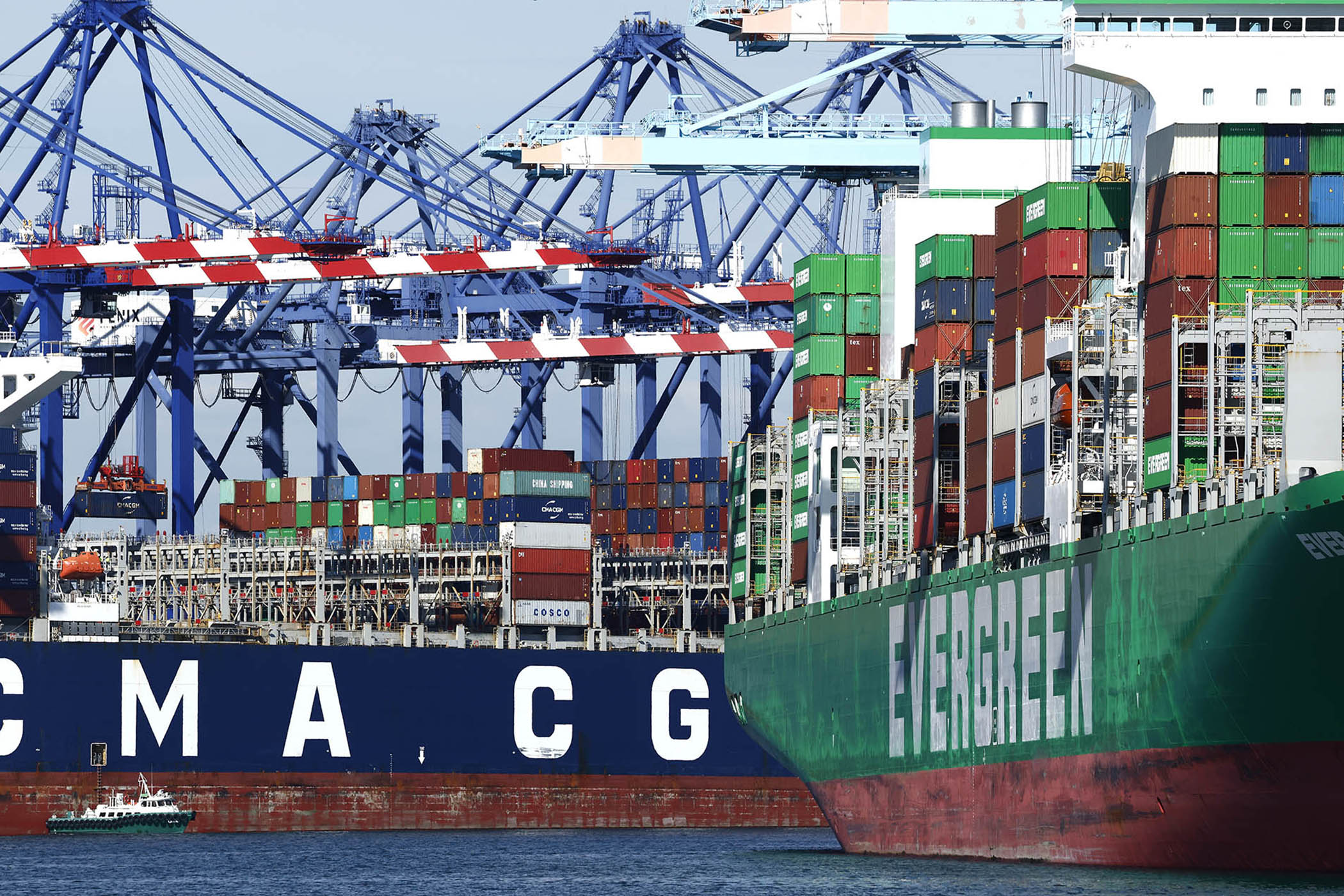You don't expect a wine tasting to come with a health warning. Måns Wiberg, the articulate young wine educator at Kullabergs Vingård, in the Skåne region of southern Sweden, tilts his glass, inspects the sparkling wine's pinkish orange hue, and begins his lecture.
"While we're handing out the glasses, I should say that alcohol, as you know, is dangerous. You shouldn't drink too much of it. You shouldn't drink it when you are pregnant or when you are driving. It is addictive, so controlled consumption is recommended. The general message is that alcohol is bad for you." That said, he moves on to the Lysekilla rosé, with its "small and rather timid bubbles" and "overtones of apricot and peach".
After an hour-and-a-half's tour of the vineyard, the three middle-aged couples in the audience get their reward: the right to buy some of the first bottles of full strength alcohol sold legally in Sweden outside of a government-owned alcohol retailer, known as a Systembolaget, in more than a hundred years.
As they queue up, clutching their maximum three bottles, they are given mock-ups of the ration book Swedes required to buy alcohol between 1919 and 1955 – the year the Systembolaget was established – stamped with the date and their allowance written in pen.
"You don't need to have this," grins Victor Dahl, the vineyard's bubbly, tousled-haired chief executive, as he hands over a copy, "but we wanted to make it fun. We wanted to make it part of Swedish alcohol history."
The health warning, educational tour, and the three-bottle limit aren't the only bureaucratic requirements tied to what Sweden's prime minister Ulf Kristersson boasted when it was passed by the parliament last year, was a "freedom reform".
Under the rules for so-called "farm sales", alcohol can only be sold at the vineyard, brewery or distillery where it is made, and in the case of vineyards must be made from grapes grown on site.
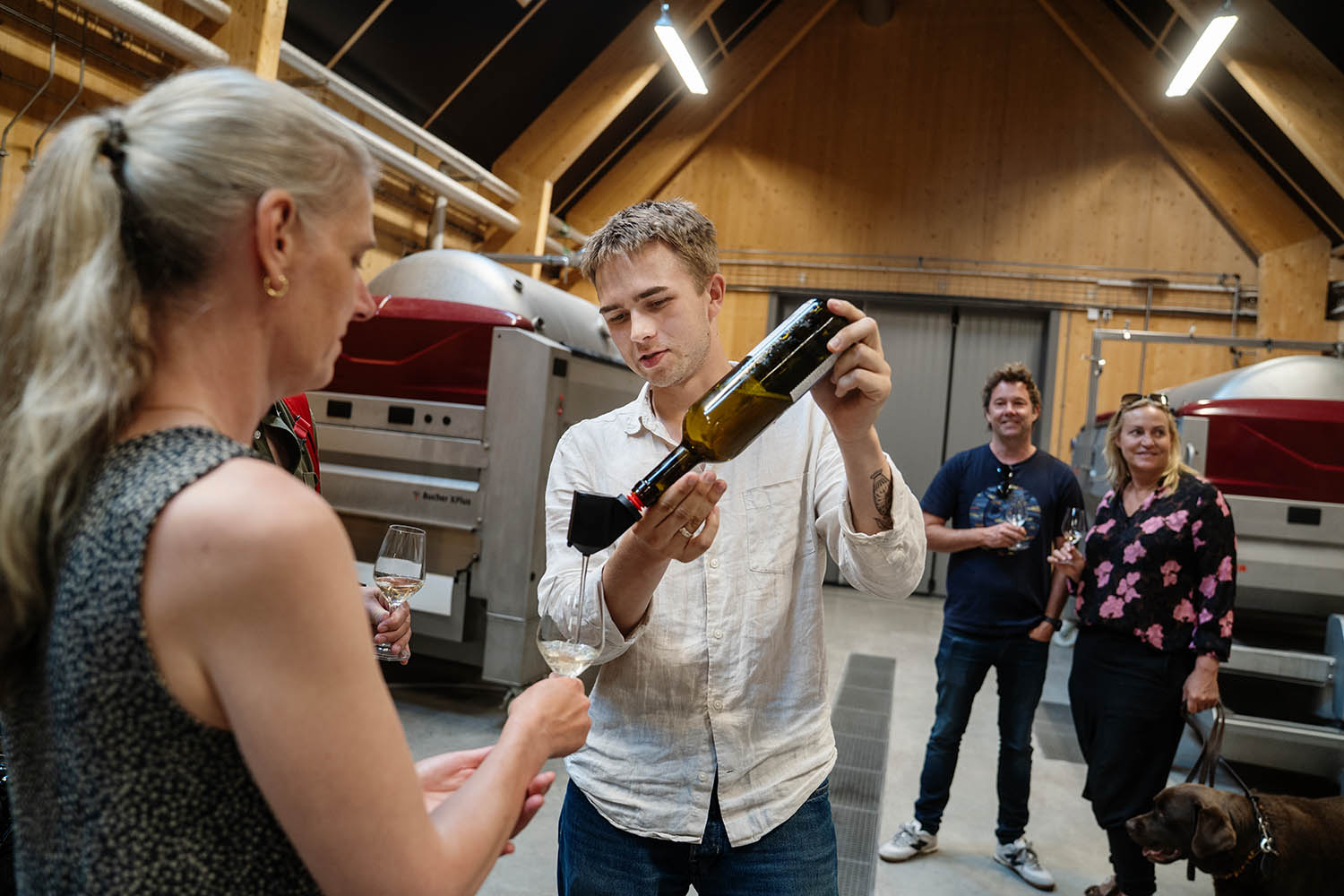
Wine educator Måns Wiberg pours a glass of white wine during the tour, which he begins by addressing the risks of alcohol.
Dahl and the vineyard's venture capitalist owner, Björn Odlander, also had to pass a 28-question exam on Swedish alcohol legislation, set by the Public Health Agency, and pay for a licence before being allowed to sell their first bottle.
For Dahl, this marked the culmination of more than a decade's effort, which has seen him meet and lobby three different agriculture ministers, often accompanied by often accompanied by Peter Schölander, the mayor of the local Höganäs municipality, for whom the reform is a way of bringing tourists to this spectacular peninsula jutting into the sea towards Denmark.
Newsletters
Choose the newsletters you want to receive
View more
For information about how The Observer protects your data, read our Privacy Policy
Given his long campaign for this tiny chink in the alcohol monopoly's grip, you might think Dahl at least would support its full abolition, but he supports the restrictive system.
"We're happy with this. We can offer a nice experience and meet people and I'm really happy with Systembolaget as our main customer," he says. "We can get all our wine out in Sweden fairly easily and they don't take a huge profit margin."
The same goes for everyone on that day’s tour. "Nowadays you can get almost any wine, any beer, whatever you want and order it from there," explains Thomas Lövstrand, who has come down from Örebro, west of Stockholm, for a wine tour when asked for his views. "If I go to a store abroad to get some wine, I'm not sure whether it's good or not. The selection in Systembolaget is more trustworthy."
They're not the only people who think so: Systembolaget ranked second only to the police in the main annual survey of Sweden's most trusted institutions this year, ahead of the Church of Sweden and the Royal Family.
In Sweden, the alcohol monopoly is credited with saving the country from the spirits, or brännvin, which plagued it in the late 19th century, setting the foundations of the prosperity it found in the middle of the 20th century.
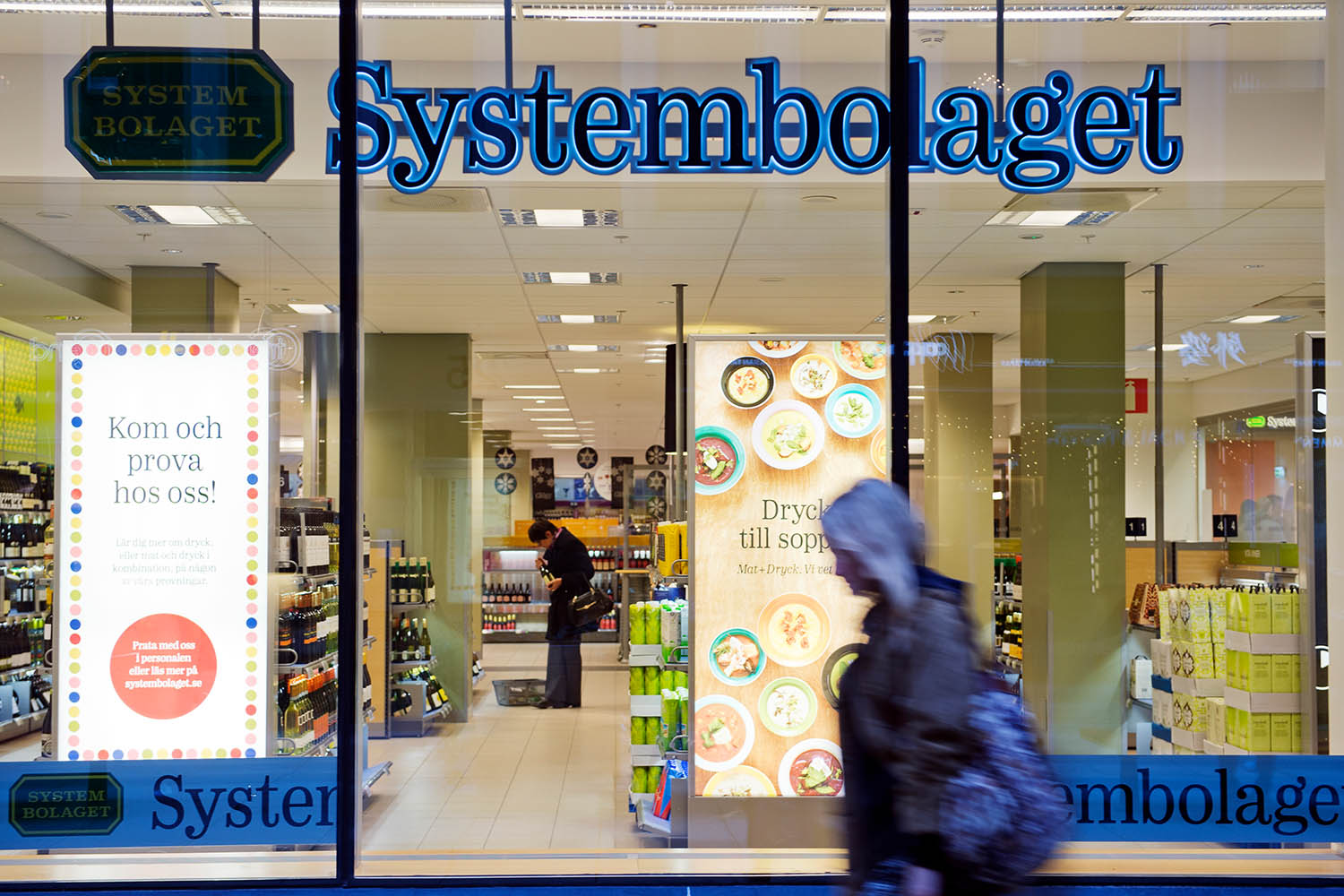
A government controlled Systembolaget store in Stockholm
"This is extremely worrying because it endangers Systembolaget's alcohol monopoly, which we know from research is one of the most effective tools for reducing alcohol harm," Lucas Nilsson, chairman of Sweden's IOGT-NTO temperance movement, warned darkly when the decision was made to allow sales this summer.
Richard Tellström, a food historian based at the Swedish University of Agricultural Sciences, argues, however, that the true motivation for the temperance movement was always less about public health than about a puritanic morality, and that consumption statistics from the mid 19th century don't support the official narrative.
"The alcohol problem was exaggerated because they wanted to have less drinking, which was related to this puritanical religious movement which grew up from the late 1700s," he argues. "If you enjoy things, then you think less of God, so they wanted to ban tobacco, to ban coffee. They banned dancing."
This ideology then fed into the Social Democratic movement and the welfare state built in Sweden in the mid 20th century.
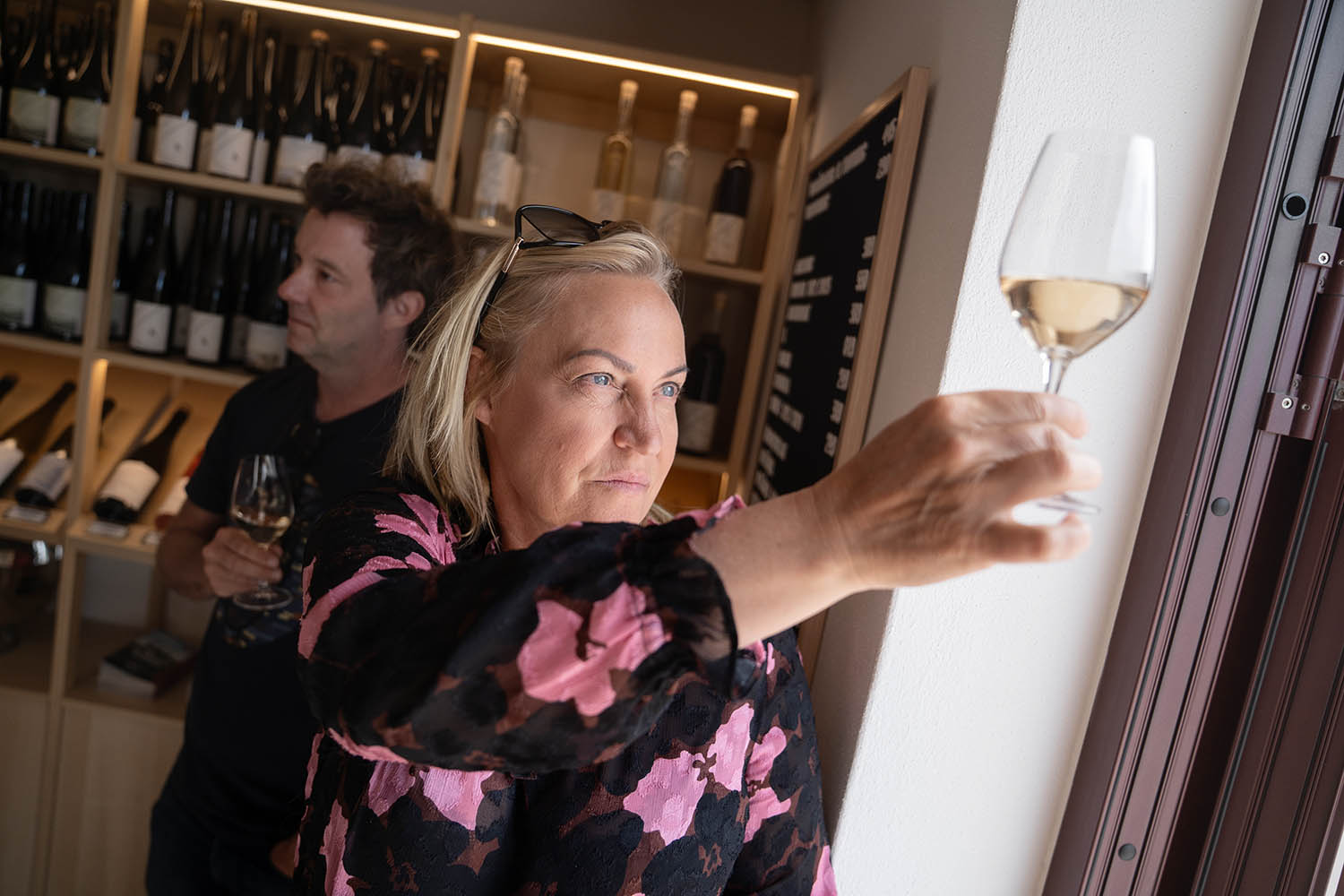
Therese and Daniel Johansson attend the wine tour at Kullaberg Vingård that starts with warnings that alcohol can be harmful.
"The politicians are still very much linked to this puritanical movement," Tellström goes on, explaining why it has taken nearly 20 years to allow on-site sales. "Even today, for instance, there are a lot of county councils that don't allow alcohol to be served on their premises. It's very fundamental to our society."
Back at the vineyard's shop, Wiberg is inspecting the bottles Thomas Löfstrand and his wife Josefina have selected to take home - the sparkling wine, the white wine and the grappa.
"The ones you tried on the tour!" he exclaims. "We've seen a strong correlation with what we taste and what people buy, especially with the spirits."
When asked about the health warning he had to give at the start of the day, he shrugs.
"I don't think that much of it. I think it's good to inform people. Alcohol is, after all, dangerous. On the other hand, you could argue most people already know that."
Photographs by Malin Palm for The Observer, Jonathan Nackstrand/AFP/Getty Images
